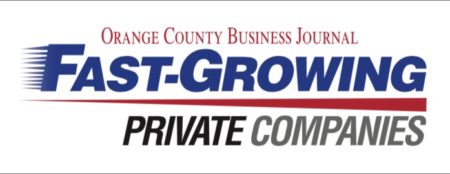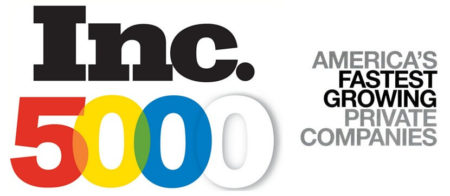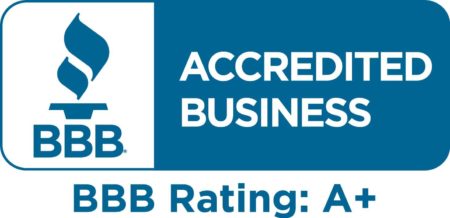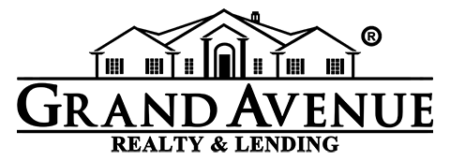What Is a Mortgage Company?
A mortgage company is a specialized financial firm engaged in the business of originating and/or funding mortgages for residential or commercial property. A mortgage company is often just the originator of a loan; it markets itself to potential borrowers and seeks funding from one of several client financial institutions that provide the capital for the mortgage itself.
That, in part, is why many mortgage companies went bankrupt during the subprime mortgage crisis of 20008-09. Because they weren’t funding most of the loans, they had few assets of their own, and when the housing markets dried up, their cash flows quickly evaporated.
- A mortgage company is a lender specializing in originating home loans.
- Some mortgage lenders offer creative and out-of-the-box loan offerings, such as no origination fees or offering loans to those with less than stellar credit.
- The factors that differentiate one mortgage company from another include relationships with funding banks, products offered, and internal underwriting standards.
- It is possible today to complete a mortgage application entirely online, although some customers prefer face-to-face meetings with a loan offer at a bank.
Understanding Mortgage Companies
A mortgage company is a financial firm that underwrites and issues (originates) its own mortgages to homebuyers, using their own capital to issue the loans. Also known as a direct lender, a mortgage company typically only specializes in mortgage products and does not offer other banking services such as checking, investments, or loans for other purposes. Moreover, they will usually offer their own products and will not offer loans or products from other companies.
Many mortgage companies today operate online or have limited branch locations, which may reduce face-to-face interaction, but could, at the same time, lower the costs of doing business.
While a mortgage company will originate loans, they may not service your loan, or keep it on their balance sheet for long. Indeed, many times, a mortgage lender will sell the loan (individually or bundled together with others) to a third-party mortgage servicing institution such as an investment bank, hedge fund, or agency like Fannie Mae or Freddie Mac. While this typically has no bearing on an individual borrower, this practice has been criticized for creating an abundance of subprime debts that ultimately led to the 2008-09 financial crisis.
Special Considerations
The Equal Credit Opportunity Act prohibits credit discrimination based on age, race, color, religion, national origin, gender, marital status, or because you get public assistance. It’s also illegal for lenders to discourage you from applying or to impose different terms or conditions because of these factors.
Finally, it prohibits lenders from denying mortgages to retirees if all standard criteria are met—things like your credit score, the size of your down payment, your liquid assets, and your debt-to-income ratio. Although it is unclear how long the trend will continue, positive economic data indicates that for the immediate future homebuyers can continue to benefit from low mortgage interest rates.
Residential loans
Single family homes, condos, 1-4 units, manufactured homes. No loan limit
Loans are based on risk
Economists study loan failures and set up tables just like insurance actuaries.
Weighted factors
Transaction type – want purchase or rate/term refinances. cashout or seconds are more risky.
Loan type – want conforming, fha or va. other loans are more risky.
Property type – want single family residences, other types such as condos, manufactured and multi units are considered more risky.
Credit rating – want minimum 640 credit score, over 700 is considered great credit. Credit reports reveal serious derogatory items and shows borrower credit trends.
Debt ratio – want 28% of housing debt coming from gross earnings (or self-employed net) and 36% including long term debts on credit report.
Loan-to-value (cltv) – want all loans to have a 20% down payment to protect them in case of foreclosure.
Loan limits are; 1. conforming, 2. high balance, 3. jumbo.
Compensating factors
Low risk levels on weighted factors, like high credit, low loan-to-value, good reserves after transaction.
Conforming loans
Fannie Mae and Freddie Mac wrote the “rules” about residential loans in the 60’s, they meet constantly and set up new standards for loan originators and banks. This is to make it easy to identify and sell good loans in the wholesale mortgage market.
Government loans
FHA – If you want to buy a home with no down payment, you can do so if you qualify for a VA loan (one of the top benefits of military service) or you live in a rural area and qualify for a USDA loan. FHA loans are the best choice for clients who want a mortgage with lower credit requirements.
FHA loans allow you to buy a home with as little as 3.5% down. You must have a median credit score of at least 580 and a qualifying debt-to-income ratio (DTI). If you have a median FICO® Score of 620 or higher, you may qualify with a slightly higher DTI. FHA loans are insured by the Federal Housing Administration.
VA – for qualified members of the armed forces, veterans and their spouses. You must meet minimum service requirements or be a surviving spouse of a service member who lost their life in the line of duty or as a result of a service-connected disability. A VA loan allows you to purchase a home with no down payment. You can also refinance 100% of your home’s value with a minimum credit score of 620. Although the VA doesn’t set specific requirements for minimum credit scores, lenders can set their own guidelines. Rocket Mortgage requires a minimum median FICO® Score of 580 or higher. VA loans are insured by the Department of Veterans Affairs.
USDA – USDA loans are loans for buyers who want to purchase a home in a rural or suburban area. Your home must be in an area the USDA deems to be sufficiently rural. You also can’t earn more than 115% of your county’s median income, and your home can’t be a working farm. You can buy a home with $0 down and have a median credit score of as low as 640. USDA loans are insured by the United States Department of Agriculture.
Non-conforming loans
A non-conforming loan is a loan that doesn’t meet Fannie Mae and Freddie Mac’s standards for purchase.
Jumbo Loans
You’ll need a jumbo loan if you want a loan that’s too large for Fannie Mae or Freddie Mac’s maximum loan amounts. The good news is that jumbo loans don’t usually have higher interest rates compared to conforming conventional loans.
However, jumbo loans often have stricter qualification criteria. You’ll need a lower debt-to-income (DTI) ratio and a higher credit score to qualify for one. Individual lenders set their own standards on qualifications and how much you can take out in a jumbo loan.
Other Non-Conforming Loan Types
Besides government-backed loans and jumbo loans, there are a few other non-conforming loan types to consider depending on your situation. Rocket Mortgage does not offer these loans, but we’re providing this information to help you understand non-conforming mortgages.
- Holding mortgage: A holding mortgage is when the seller acts like a lender to the home buyer. The buyer makes monthly payments to the seller, who holds onto the property title until the loan is paid in full.
- Hard money loan: A hard money loan is a short-term loan offered by individuals or private companies that accept property or an asset as collateral.
- Purchase money mortgage: A purchase money mortgage is common for buyers who don’t qualify for standard bank financing. The purchase money mortgage, otherwise known as owner/seller financing, is a loan from the seller that’s given to the buyer.
- Interest-only mortgage: An interest-only mortgage is when you only pay interest on the loan for a set period of time. Adjustable-rate and fixed-rate are the two types of interest-only mortgage.
Bank ratesheets
reskills.net/rates
Bank guidelines and Underwriters
x
Bank websites
x
Bank account executives
x
What Is a Mortgage Application?
A mortgage application is a document submitted to a lender when you apply for a mortgage to purchase real estate. The application is extensive and contains information about the property being considered for purchase, the borrower’s financial situation and employment history, and more. Lenders use the information in a mortgage application to decide whether or not to approve the loan.
KEY TAKEAWAYS
- You submit a mortgage application to a lender when you apply for a mortgage or purchase real estate.
- A mortgage application requires extensive information, including the property being considered for purchase, the borrower’s financial situation and employment history, and more.
- Lenders use the information in the application to decide whether or not to approve the loan.
- One of the most common mortgage applications is the 1003 mortgage application form, also known as the Uniform Residential Loan Application.
- The Federal Housing Finance Agency (FHFA) has put in place more flexible lending and appraisal standards for mortgages backed by Fannie Mae and Freddie Mac to make sure that homebuyers can close on loans during the recent economic crisis.
Understanding a Mortgage Application
Once you are under contract to buy a specific property, your lender will initiate the mortgage application. The mortgage application asks for a significant amount of information, so it’s best to gather all of your financial details prior to applying.
Although there are several versions of mortgage applications that are used by lenders, one of the most common is the 1003 mortgage application form, also known as the Uniform Residential Loan Application, which is a standardized form used by the majority of lenders in the U.S. The 1003 form includes all the information that a mortgage lender needs to determine whether a potential borrower is worth the risk of the loan.1
The 1003 loan application is a form from Fannie Mae. Fannie Mae and Freddie Mac are lending enterprises created by Congress that purchase and guarantee mortgages. As both require the use of Form 1003—or its Freddie Mac equivalent, Form 65—for any mortgage that they consider for purchase, it is simpler for lenders to use the appropriate form at the outset than try to transfer information from a proprietary form to a 1003 form when the time comes to sell the mortgage.1
Mortgage lending discrimination is illegal. If you think you’ve been discriminated against based on race, religion, sex, marital status, use of public assistance, national origin, disability, or age, then there are steps you can take. One such step is to file a report with the Consumer Financial Protection Bureau (CFPB) or the U.S. Department of Housing and Urban Development (HUD).
Mortgage Application Requirements
The information required on a typical mortgage application includes:
Borrower’s Information
- Borrower’s address, marital status, and dependents
- The type of credit being applied for, meaning whether it’s a joint or individual application
- Social Security number and date of birth
- Current employer and address, as well as employment income2
Supporting documents, such as bank statements and pay stubs, are often submitted along with the application. If you’re self-employed, then you may need to produce two years of tax returns to demonstrate proof of income.2
Financial Information
This section asks for your assets or anything that you own that has financial value, as well as your debts and liabilities.
- Assets include bank accounts, retirement accounts, certificates of deposit, savings accounts, and brokerage accounts for stocks or bonds
- Liabilities include revolving credit, such as credit cards or store charge cards, and installment loans, such as student, car, and personal loans
- Any real estate owned and its estimated value or rental income, if applicable2
Mortgage Loan and Property
This section is about the home that you’re looking to purchase and all of its details.
- Address of the property
- The loan amount, and the type of loan, such as a purchase or refinance
- Any rental income from the property, if you are buying the home as an investment with the goal of renting it out2
Declarations
This section includes a series of questions to determine your intent regarding how you want to use the property and to disclose any other legal or financial matters not included in the application.
- Will the home be your primary residence, or your second home?
- Are there any judgments, lawsuits, or liens against you?
- Do you have any past foreclosures, or are you a guarantor for another loan?2
Acknowledge and Agree
This section is where you sign the application, essentially stating that you believe the information that you provided is accurate and true.2
The information submitted on the mortgage application will be verified and examined by the bank’s underwriter, who will then decide how much the bank will loan to you, and at what interest rate. When your mortgage application has been approved, the bank will send you a loan estimate, which details the closing costs, and finally a commitment letter. At this time, you may need to pay a deposit of your closing costs to cover the cost of an appraisal.2
Special Considerations
The mortgage application is just one step in the loan application process. Borrowers need to first assess their finances. Lenders prefer to see a debt-to-income (DTI) ratio that doesn’t exceed 35%, with no more than 28% of that debt going toward servicing your mortgage. So, for example, if you earn $85,000 a year, then your housing expenses should not exceed $2,480 a month. Housing expenses include not only the potential mortgage payment but also the home insurance, property taxes, and condominium fees, if applicable.3
Lenders also will charge for private mortgage insurance (PMI) if the borrower has a down payment that’s less than 20% of the purchase price of the home. PMI protects the lender in case the borrower can’t pay off the loan.4
Upfront fees on Fannie Mae and Freddie Mac home loans changed in May 2023. Fees were increased for homebuyers with higher credit scores, such as 740 or higher, while they were decreased for homebuyers with lower credit scores, such as those below 640. Another change: Your down payment will influence what your fee is. The higher your down payment, the lower your fees, though it will still depend on your credit score. Fannie Mae provides the Loan-Level Price Adjustments on its website.5
Because of this, it’s important to consider the size of your down payment. A smaller down payment will lead to a larger monthly mortgage payment. Conversely, if the borrower puts down at least 20%, then the monthly payment is less and there would be no monthly PMI payment. Conventional mortgages generally require a minimum of 5%, while Federal Housing Administration (FHA) mortgages ask for 3.5%. Veterans Affairs (VA) mortgages often require nothing down.67
The next step is to approach a lender for pre-qualification, which includes a credit check that helps the lender assess how much to lend you. Once you have your pre-qualification letter, it allows you to start shopping for homes.
GRAND AVENUE REALTY & LENDING
One of the fastest growing companies in America





